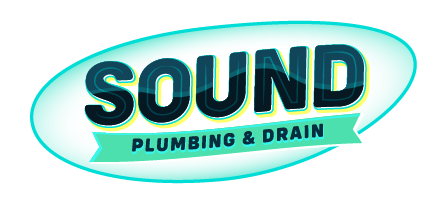Does Home Insurance Cover Plumbing Issues?
Homeowners insurance sometimes covers plumbing problems, but it depends on what caused the damage. Most policies will pay for sudden and accidental water damage, but they won’t cover gradual leaks, neglect, or wear and tear.
If a pipe unexpectedly bursts, causing damage to floors, walls, and personal property, insurance typically covers the resulting repairs. However, policies usually exclude the cost of fixing or replacing the broken pipe.
For a claim to be approved, homeowners must show they took reasonable steps to prevent the issue. If an insurer determines that the damage happened due to negligence—such as failing to heat the home during freezing temperatures—they may deny the claim.
Certain plumbing failures, like sewer backups and sump pump failures, are not covered under standard policies unless water backup coverage has been added. Similarly, flood-related plumbing damage requires a separate flood insurance policy.
Homeowners in Portland, OR, and Vancouver, WA should be aware of local insurance regulations and weather-related risks like heavy rain, frozen pipes, and aging sewer systems.
Here's What We Have Covered In This Article
Causes Water Leaks in Walls?
Plumbing leaks inside walls don’t happen overnight. They are usually the result of underlying problems that develop over time. Here are some of the most common reasons pipes start leaking behind walls:
- Pipe Corrosion: Older pipes, especially galvanized steel or copper, corrode over time due to constant exposure to water and minerals. This weakens the pipe walls and leads to leaks.
- High Water Pressure: Excessive water pressure puts stress on pipes and joints, increasing the risk of cracks or bursts inside walls.
- Temperature Fluctuations: Extreme temperature changes can cause pipes to expand and contract, leading to small fractures that eventually turn into leaks.
- Poor Plumbing Installations: Improper pipe fittings, loose connections, or low-quality materials can cause leaks soon after installation.
- Foundation Shifts: Even slight movements in a home’s foundation can put stress on pipes, causing them to crack or disconnect.
- Clogged Drain Lines: If a clogged drain overflows inside a wall, water can seep into drywall and insulation before it becomes noticeable.
Ignoring these issues can lead to mold growth, water damage, and costly repairs. If you suspect a hidden leak in your walls, it’s best to act quickly before the damage gets worse.
Signs You Might Have a Water Leak Behind a Wall
Hidden leaks don’t always show up immediately, but certain signs can indicate there’s water behind your walls. Here’s what to watch for:
- Damp or Discolored Spots: Yellow or brown stains on walls or ceilings suggest water is leaking inside.
- Peeling or Bubbling Paint: Water weakens paint and drywall, causing it to bubble, warp, or peel.
- Mold or Mildew Growth: Persistent moisture creates the perfect environment for mold, which can appear as black or greenish patches on walls.
- Musty Odors: A damp, musty smell is a sign that water is trapped behind walls, leading to mold and mildew.
- Unexplained Increase in Water Bills: If your water usage hasn’t changed but your bill has gone up, you might have a hidden leak.
- Sound of Running Water: If you hear dripping, hissing, or flowing water inside the walls when no fixtures are in use, a leak is likely present.
If you notice any of these signs, don’t wait. Water damage spreads fast, and the longer you wait, the worse the repair costs can get.
5 Ways Plumbers Detect Water Leaks Inside Walls
Professional plumbers use specialized tools to find leaks without tearing into walls unnecessarily. Here are five of the most effective leak detection methods:
- Water Meter Test
- Acoustic Leak Detection
- Thermal Imaging Cameras
- Moisture Meters
- Pressure Testing the Plumbing System
Each method helps plumbers pinpoint the source of the leak so repairs can be made quickly and efficiently.
1. Water Meter Test
One of the simplest ways to check for a hidden leak is by using the water meter. Here’s how it works:
- Turn Off All Water Sources – Shut off all faucets, appliances, and outdoor sprinklers.
- Check Your Water Meter – Locate the water meter, usually outside near the curb, and take note of the current reading.
- Wait and Recheck – Leave all water sources off for an hour, then check the meter again.
- Look for Movement – If the meter has changed, but no one has used water, there’s a leak somewhere in your home.
A water meter test won’t tell you where the leak is, but it confirms that water is escaping. From here, a plumber can use more advanced methods to pinpoint the exact location inside your walls.
f you’re in Vancouver, WA, or Portland, OR, and need fast, professional leak detection, call Sound Plumbing & Drain at +1 360-768-6857. We offer 24/7 emergency service and use the latest technology to find and fix leaks before they cause serious damage.
– Address: 7720 NE Hwy 99 D, Vancouver, WA 98665, United States
– Email: info@soundplumbers.com
2. Acoustic Leak Detection
Plumbers use acoustic leak detection to find water leaks inside walls by listening for subtle sounds that indicate running or dripping water. Since water escaping from a pipe creates vibrations, specialized equipment can amplify these noises to pinpoint the leak’s exact location.
How It Works:
- Microphones & Sensors – Highly sensitive ground microphones and amplifiers pick up the sound of water movement behind walls.
- Listening for Differences – A plumber moves the microphone along the wall, listening for changes in frequency or intensity that suggest a break in the pipe.
- Eliminating Background Noise – By shutting off other water sources and using noise filters, plumbers can separate normal plumbing sounds from leak-related noises.
Acoustic leak detection is non-invasive, meaning no holes need to be cut in the wall. It works best for pressurized water lines, as leaks in drains or vent pipes don’t always produce noticeable sounds.
3. Thermal Imaging Cameras
Infrared thermal imaging cameras help detect leaks inside walls by identifying temperature differences caused by moisture. When water leaks from a pipe, it cools the surrounding area, making it visible on a thermal scan.
How It Works:
- Scanning the Wall – A plumber moves an infrared camera across the wall’s surface.
- Detecting Cold Spots – The camera displays temperature variations, revealing cooler areas where water might be leaking.
- Comparing Dry vs. Wet Areas – By identifying abnormal cooling patterns, a plumber can pinpoint the leak without opening the wall.
Thermal imaging is especially useful for hot water leaks, as the escaping water creates an even stronger temperature contrast. While it doesn’t show the exact leak location, it helps narrow down the affected area.
4. Moisture Meters
A moisture meter measures how much water is present inside walls, helping plumbers confirm whether there’s hidden moisture from a leak.
How It Works:
- Contact or Pinless Meters – Some moisture meters use pins to measure water inside drywall, while others scan the surface without causing damage.
- Checking for Abnormal Readings – A plumber compares readings from dry and suspect areas to see if moisture levels are higher in one spot.
- Determining Severity – The results show whether moisture is just starting to accumulate or if water damage has been ongoing.
Moisture meters work best after spotting other leak signs, like bubbling paint or musty odors, as they confirm if water is present inside the wall.
5. Pressure Testing the Plumbing System
If other methods don’t find the leak, plumbers may perform a pressure test to isolate which part of the plumbing system is leaking.
How It Works:
- Shutting Off Water – The main water supply is turned off to prevent further water flow.
- Using a Pressure Gauge – A plumber attaches a pressure gauge to the plumbing system.
- Monitoring for Drops – If the pressure drops over time, it means there’s a leak somewhere in the system.
- Section-by-Section Testing – The plumber can test different parts of the home by shutting off valves and checking if the pressure stabilizes.
Pressure testing helps identify which section of piping has a problem but doesn’t reveal the exact leak location. That’s why it’s often combined with acoustic or thermal imaging for a precise diagnosis.
If you need professional leak detection in Vancouver, WA, or Portland, OR, contact Sound Plumbing & Drain at +1 360-768-6857. Their experienced plumbers use advanced technology to find and fix leaks before they cause major damage.
– Address: 7720 NE Hwy 99 D, Vancouver, WA 98665, United States
– Email: info@soundplumbers.com
– Open 24/7 – Emergency Services Available
What Happens if You Ignore a Water Leak?
A hidden water leak inside your walls won’t fix itself. The longer it goes undetected, the worse the damage becomes. Here’s what can happen if a leak isn’t repaired quickly:
- Structural Damage: Water weakens drywall, wooden framing, and even concrete, leading to rotting, warping, and cracks in your home’s structure.
- Mold Growth: Moisture trapped inside walls creates the perfect environment for mold. Once mold spreads, it can affect air quality and require expensive removal.
- Peeling Paint & Stained Walls: Water stains, bubbling paint, and warped walls are clear signs of long-term moisture damage. These cosmetic issues often point to deeper structural problems.
- Electrical Hazards: If water comes into contact with electrical wiring, it increases the risk of shorts and fires.
- Higher Water Bills: Even a small leak wastes gallons of water over time, driving up utility costs.
- More Expensive Repairs: A simple pipe fix can turn into major renovations if the leak isn’t caught early.
If you suspect a leak, act fast before the damage spreads. A professional plumber can find and fix leaks quickly to prevent costly repairs.
DIY vs. Professional Leak Detection
Some homeowners try DIY methods to find leaks, but professional leak detection is often more accurate, faster, and less invasive. Here’s how they compare:
| DIY Leak Detection | Professional Leak Detection |
|---|---|
| Requires trial and error, often cutting into walls | Uses non-invasive technology like thermal imaging and acoustic sensors |
| Can miss hidden leaks behind walls and floors | Finds leaks precisely, even inside concrete and underground |
| Relies on basic methods like checking water meters | Uses advanced tools to detect even the smallest leaks |
| May waste time and money guessing where the leak is | Saves money by pinpointing the issue before major damage occurs |
If you’re not sure where the leak is, calling a licensed plumber is the best way to avoid unnecessary damage and costly repairs.
How Sound Plumbing & Drain Can Help with Leak Detection
If you’re in Vancouver, WA, or Portland, OR, and dealing with hidden water leaks, Sound Plumbing & Drain can help. Their team uses state-of-the-art leak detection tools to quickly locate leaks without tearing into walls unnecessarily.
Why Choose Sound Plumbing & Drain?
- Non-invasive leak detection – No need for unnecessary drywall cuts
- Advanced equipment – Thermal imaging, moisture meters, and acoustic detection
- Fast, accurate service – 24/7 emergency leak detection available
- Honest pricing – Upfront quotes with no hidden fees
- Licensed and experienced plumbers
A small leak can turn into a big problem fast. Don’t wait—let the experts at Sound Plumbing & Drain find and fix the issue before it gets worse.
Get Fast, Reliable Leak Detection in Vancouver & Portland
- Address: 7720 NE Hwy 99 D, Vancouver, WA 98665, United States
- Call: +1 360-768-6857
- Email: info@soundplumbers.com
- Open 24/7 – Emergency Services Available
If you think there’s a leak inside your walls, don’t wait for the damage to spread. Call Sound Plumbing & Drain today for expert leak detection in Vancouver, WA, and Portland, OR.





